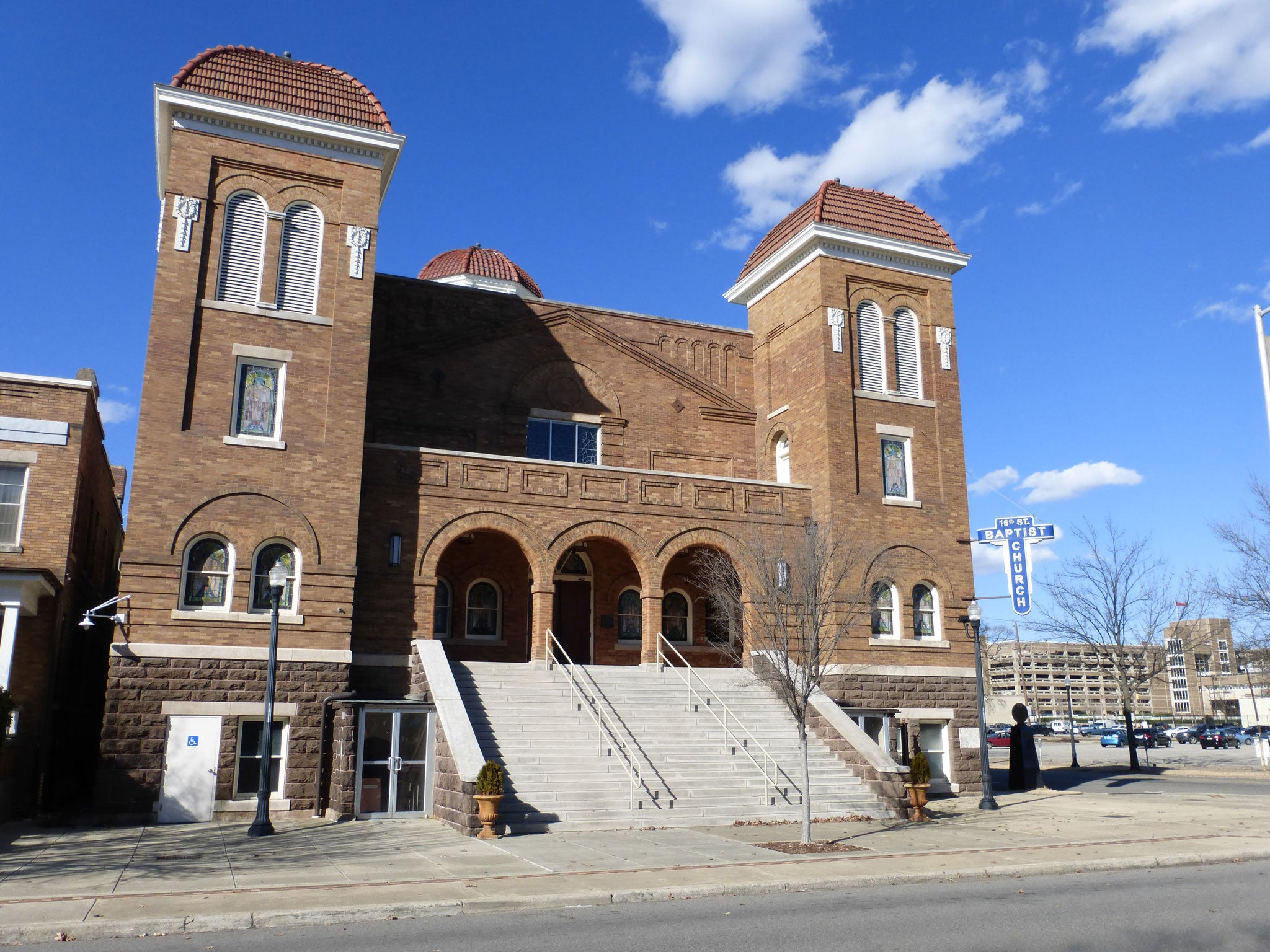50 years after the passage of the Civil Rights Act, how have things changed on Martin Luther King Day in Birmingham, Alabama?
Matthew Wood, on a year abroad at the University of Alabama, discusses what life is like today in one of the major battlegrounds of the 60s

In 1983, President Reagan made the third Monday of every January a federal holiday to commemorate the efforts of the century's leading civil rights activist. Martin Luther King Jr. Day. was first observed in 1986 but only implemented by all fifty US states in 2000. I recently visited the Civil Rights Institute in Birmingham, Alabama to assess the extent to which the city's black residents have achieved equality and integration in the city since the civil rights movement in the 60s.
In 1960, King's Southern Christian Leadership Conference identified Birmingham, Alabama as the epicentre of racial inequality, discrimination and segregation, and therefore their chosen battleground. King and local pastor Fred Shuttlesworth oversaw a peaceful boycott which resulted in progressive negotiations with the city's business leaders. This was a momentous occasion considering that at the turn of the century, the "City of Success" had emerged as an industrial powerhouse due to its heavy reliance on de facto slave labour to work the mines and steel factories.
However, not all of the city's powerful elite supported the integration movement. Civil rights activists were targeted by white extremists who in 1963 alone detonated over 50 dynamite explosions, earning the city the undesirable tag of “Bombingham”. Ku Klux Klan members organised the terrorist attack on the 16th Street Baptist Church which resulted in the deaths of four young girls; the convictions were frustratingly late and the sentences unjust. The infamous Eugene “Bull” Connor mercilessly suppressed the nonviolent resistance of unified SCLC members and local students in an episode of shocking and unfettered police brutality. Significantly, the world's television cameras captured images of police unleashing vicious dogs and powerful water hoses on defenseless protesters who remained composed, only breaking their silence to sing “We Shall Overcome”. This prompted a global outcry and led to the passage of the Civil Rights Act in 1964. Passivity in the face of racist violence had prevailed.
Birmingham in 2014 is a multicultural hub for financial, commerce and medical operations. Richard Arrington served an unprecedented 20 years as the first black mayor of the city from 1979, a period in which he single-handedly fronted a campaign for regeneration. Downtown is now a bustling areas of bars, bistros and microbreweries frequented by a youthful wave of intellects, doctors and lawyers. There are plans in place to link the city's districts together with a system of sprawling urban parks.
However, behind the seemingly harmonious present situation lies an undercurrent of white superiority which seeks to exclude Birmingham's black community. “White flight” is the term given to the process by which white residents avoid sharing public space with their African American counterparts. The downtrodden inner city areas are physically separated from the affluent suburban regions by the Red Mountain ridge. The politically distinct municipalities ensure their education system maintains a high quality by direct taxation funding. On the other hand, the city's transportation and school services are in desperate need of monetary improvement. Ironically, they are used and attended primarily by African Americans. The practice of interracial church attendance is around just 10 per cent. The city's white elite have slyly negotiated a partially segregated coexistence. The blue versus white collar discrepancy continues to illustrate the hurdles blocking most black residents from emerging as second class citizens. Examples of violence have been replaced by an unspoken yet fierce animosity. An undercurrent of police brutality has given way to Obama's decision to confront the notion of racial profiling head on, so far with limited success.
A comparison of the University of Alabama's two main campuses (one in downtown Birmingham, one in Tuscaloosa) outlines their stark differences. For example, the city establishment is a liberal and culturally diverse entity which continues to implement the progressive measures championed by King, Shuttlesworth and Arrington alike. The college town institution has been less successful in modernising; there exists a stifling conformity and uniformity of appearance, opinion and mindset amongst many in the student population. Alabama is gradually moving forward, albeit not as quickly as Dr. King would have wished.
Matthew Wood is reading American Studies at the University of Birmingham (UK). He is currently on his year abroad at the University of Alabama, in Birmingham (Alabama)
Join our commenting forum
Join thought-provoking conversations, follow other Independent readers and see their replies
Comments